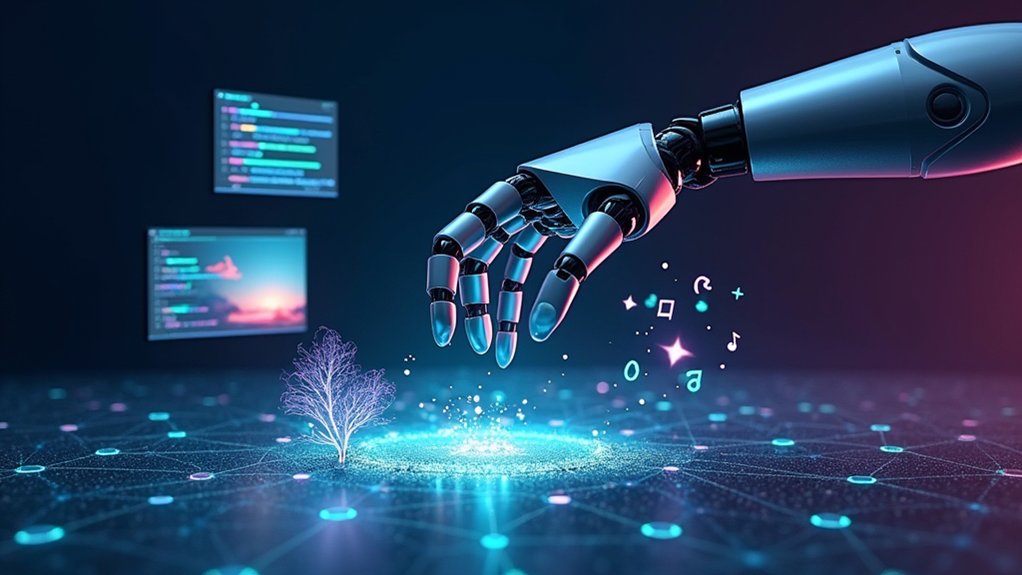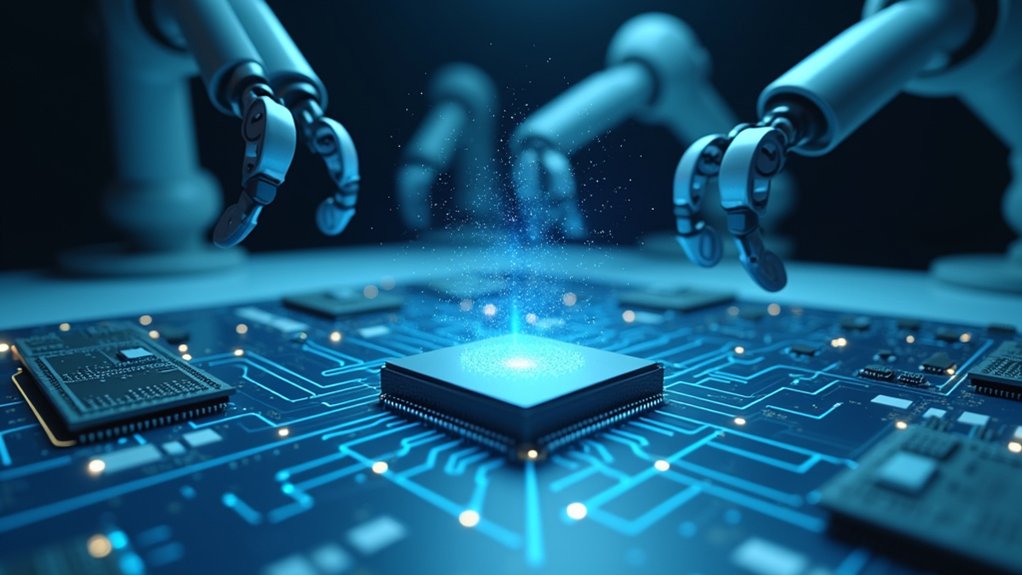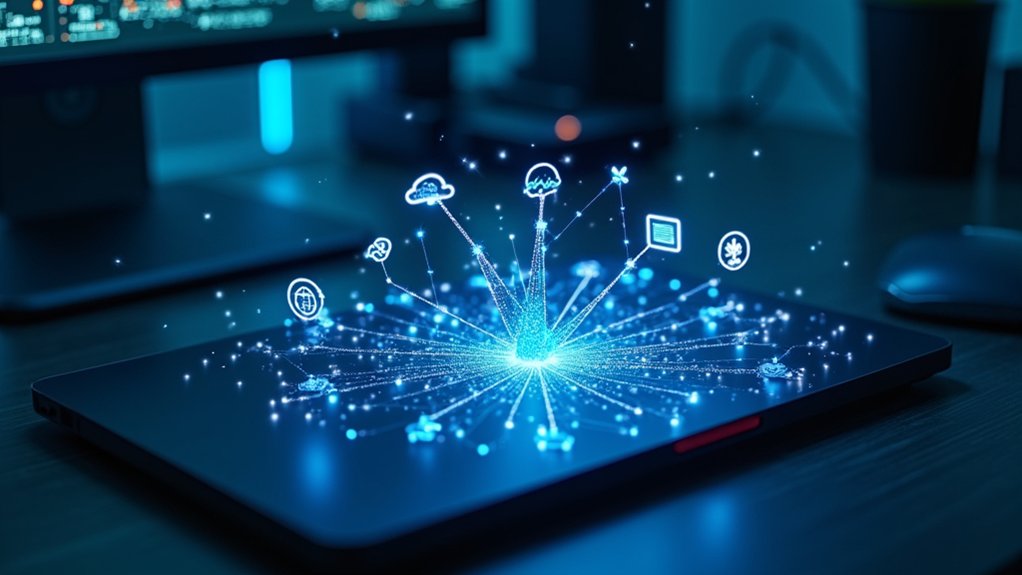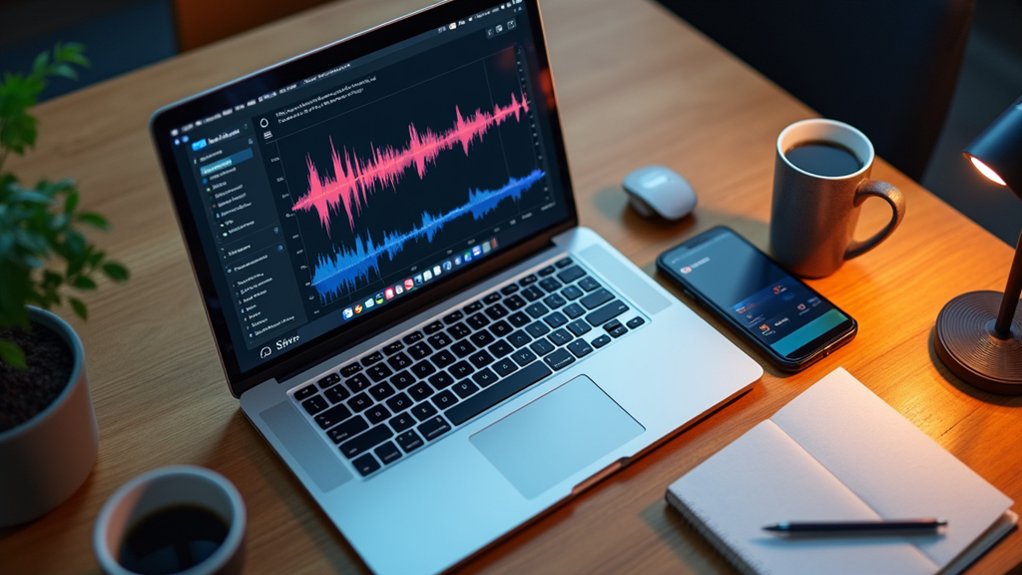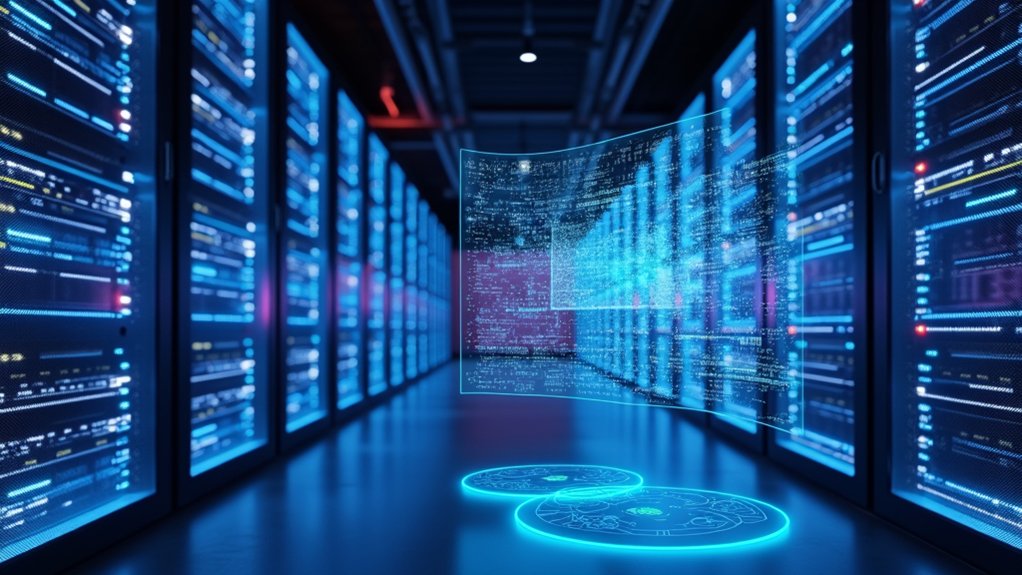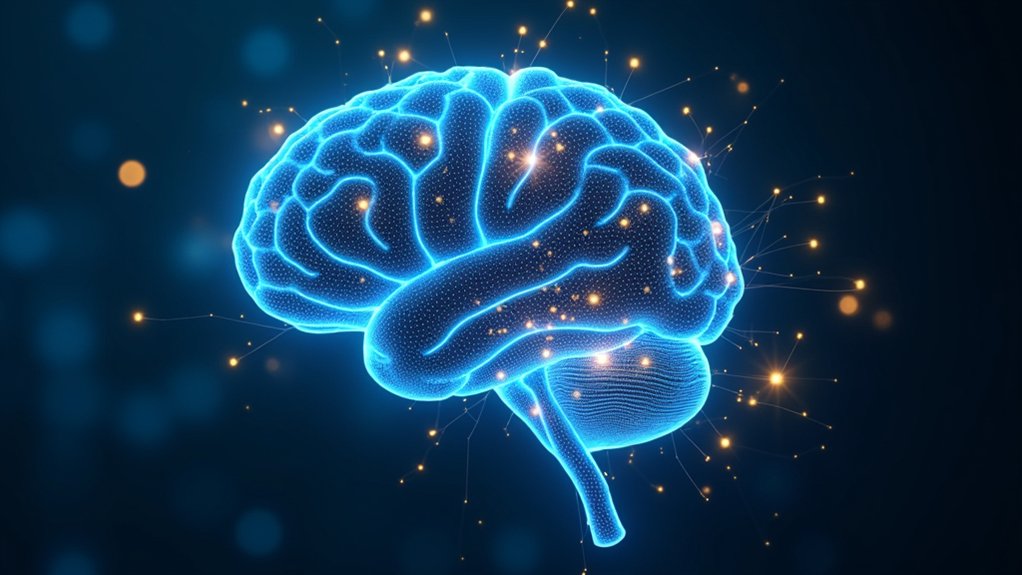AI-generated content refers to text, images, audio, or videos created by artificial intelligence systems without direct human involvement. These systems use machine learning algorithms to produce various content types for industries like marketing, e-commerce, entertainment, and education. AI content can be created quickly, consistently, and around the clock, making it cost-effective for businesses. However, it often lacks human creativity and may contain inaccuracies or biases. The following sections explore key applications and limitations in greater detail.
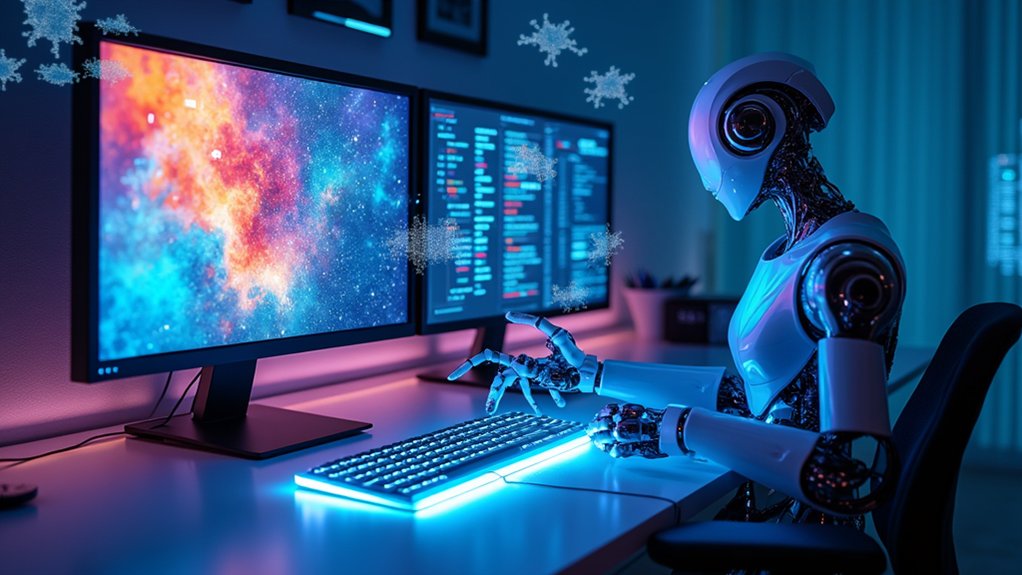
As technology continues to advance at a rapid pace, AI-generated content has become increasingly common in our daily lives. This content includes text, images, audio, or video created by artificial intelligence systems without direct human involvement. These AI systems use machine learning algorithms and large datasets to produce content that mimics what humans might create.
AI-generated content comes in many forms. Written content like articles and social media posts are common examples. Visual content such as images and graphics can be created within seconds. AI also produces audio content like music and voiceovers, as well as video content ranging from short clips to longer videos. Even interactive content like chatbots falls into this category.
Today's AI systems create everything from articles and images to music and chatbots in mere seconds.
Many industries now use AI-generated content for various purposes. Content marketers use it for blogs and social media posts. E-commerce websites use it for product descriptions and recommendations. It's also found in entertainment, education, and business settings, producing everything from news articles to business reports.
The advantages of AI-generated content are significant. It can be produced quickly and at scale, making it cost-effective compared to human-created content. It maintains consistency in tone and style, can work around the clock, and can be personalized for different audiences. Studies show that about 82% of marketers consider AI-generated content comparable or superior to human-generated content in terms of quality and effectiveness. Most effective AI content requires human editing to ensure accuracy and add a personal touch that resonates with readers.
However, AI content faces several challenges. It may lack originality and creativity that humans naturally bring. There's also risk of generating inaccurate or biased information. Ethical questions about authorship and transparency remain unresolved. AI often struggles with nuanced emotions, and its growing use raises concerns about jobs for human content creators. Businesses should be aware that relying solely on AI text can result in up to 95% decrease in organic traffic.
Popular tools for generating this content include OpenAI's GPT models, Google's BERT, Midjourney for images, DALL-E, and writing assistants like Jasper.ai.
Future trends point toward improved language processing, better personalization, integration with virtual reality, more automated journalism, and increasingly sophisticated AI systems that work across multiple content types.
Frequently Asked Questions
How Do I Detect if Content Was Ai-Generated?
Detecting AI-generated content relies on multiple methods. Experts look for telltale signs like repetitive phrasing, lack of personal experiences, and overly perfect grammar.
Several tools offer automated detection, including GPTZero, Originality.ai, and Turnitin. These analyze text for patterns common in AI writing.
Researchers also examine linguistic features like sentence variety and complexity. Content evaluation includes checking for appropriate emotional tone and subject-specific knowledge depth.
Can Ai-Generated Content Rank Well in Search Engines?
AI-generated content can rank well in search engines, according to recent studies. Google doesn't automatically penalize AI content but focuses on quality instead.
Nearly 60% of AI content appears in the top 10 search results. For success, the content must meet Google's E-E-A-T standards and provide unique value.
However, AI content risks including inaccurate information and lacks originality compared to human writing.
Is Ai-Generated Content Considered Plagiarism?
AI-generated content isn't automatically plagiarism, but it can be used in ways that constitute plagiaristic behavior.
Many academic institutions now require students to disclose AI use. The legal and ethical standards remain unclear.
When someone presents AI-written content as their own work without disclosure, it may violate academic integrity policies.
The debate continues as schools and organizations develop new guidelines for appropriate AI use.
Who Owns the Copyright to Ai-Generated Content?
The copyright ownership of AI-generated content remains unclear.
The U.S. Copyright Office doesn't grant protection to purely AI-created works since they lack human authorship. However, content with significant human creative input may qualify for copyright.
Different AI companies have varying policies – OpenAI gives users ownership rights, while Midjourney offers limited licenses.
The law continues to evolve as courts examine case-by-case scenarios of human-AI collaboration.
Should I Disclose When Content Is Created by AI?
Organizations are increasingly choosing to disclose AI-created content. Transparency builds trust with audiences, while some jurisdictions are developing legal requirements for disclosure.
However, concerns exist that labeling content as AI-generated might reduce its perceived value.
Best practices include explaining the AI's specific role in content creation and using clear, consistent labeling. Many platforms now have policies requiring creators to identify when AI tools were substantially used.
